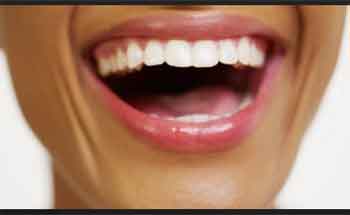- Home
- Editorial
- News
- Practice Guidelines
- Anesthesiology Guidelines
- Cancer Guidelines
- Cardiac Sciences Guidelines
- Critical Care Guidelines
- Dentistry Guidelines
- Dermatology Guidelines
- Diabetes and Endo Guidelines
- Diagnostics Guidelines
- ENT Guidelines
- Featured Practice Guidelines
- Gastroenterology Guidelines
- Geriatrics Guidelines
- Medicine Guidelines
- Nephrology Guidelines
- Neurosciences Guidelines
- Obs and Gynae Guidelines
- Ophthalmology Guidelines
- Orthopaedics Guidelines
- Paediatrics Guidelines
- Psychiatry Guidelines
- Pulmonology Guidelines
- Radiology Guidelines
- Surgery Guidelines
- Urology Guidelines
Molecule in human saliva has potential for wound healing

A study published online in The FASEB Journaldelves into the mystifying fact that wounds in your mouth heal faster and more efficiently than wounds elsewhere. Until now, it was understood that saliva played a part in the wound healing process, though the extent of its role was unknown. The study examined the effects of salivary peptide histatin-1 on angiogenesis (blood vessel formation), which is critical to the efficiency of wound healing. Researchers found that histatin-1 promotes angiogenesis, as well as cell adhesion and migration.
"These findings open new alternatives to better understand the biology underlying the differences between oral and skin wound healing," said Vicente A. Torres, Ph.D., associate professor at the Institute for Research in Dental Sciences within the Faculty of Dentistry at the University of Chile in Santiago, Chile. "We believe that the study could help the design of better approaches to improve wound healing in tissues other than the mouth."
The study involved experiments at three levels: (1) endothelial, or blood vessel-forming, cells in culture, (2) chicken embryos as animal models, and (3) saliva samples obtained from healthy donors. Using these three models, histatin-1 and saliva were found to increase blood vessel formation. Researchers are now taking the next step in this line of study using these molecules to generate materials and implants to aid in wound healing.
"The clear results of the present study open a wide door to a therapeutic advance. They also bring to mind the possible meaning of animals, and often children, 'licking their wounds,'" said Thoru Pederson, Ph.D., Editor-in-Chief of The FASEB Journal.

Disclaimer: This site is primarily intended for healthcare professionals. Any content/information on this website does not replace the advice of medical and/or health professionals and should not be construed as medical/diagnostic advice/endorsement or prescription. Use of this site is subject to our terms of use, privacy policy, advertisement policy. © 2020 Minerva Medical Treatment Pvt Ltd